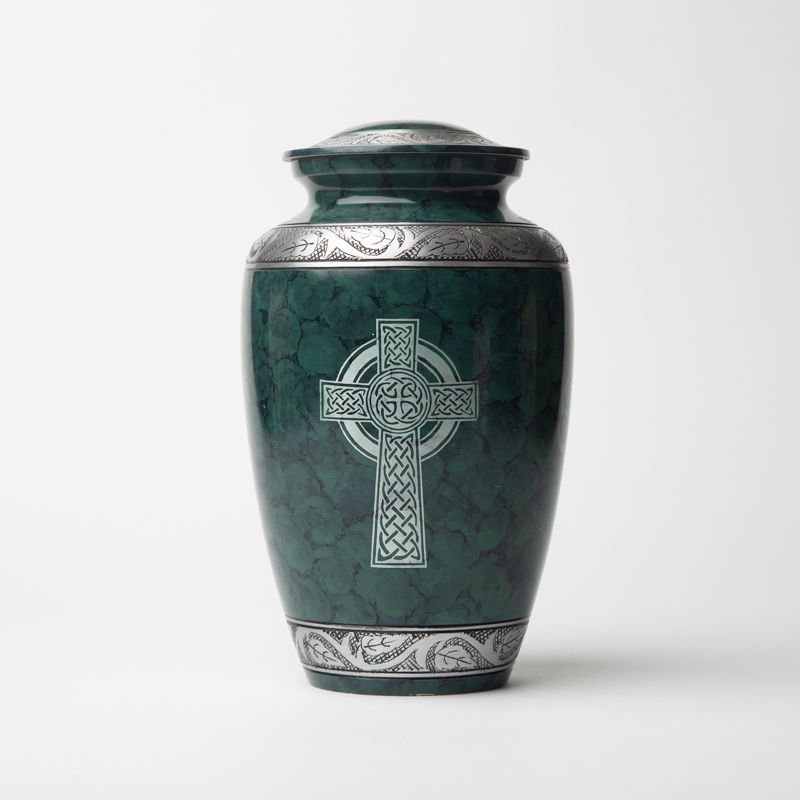
Cremation has replaced traditional burial as the number one choice for families in the US over the past few years. This has made cremation the “new normal” across the nation, and many funeral homes and cemeteries now offer a wide variety of services catering to cremation families.
The main drivers behind the growth of cremation include its lower price point, changing personal preferences, environmental considerations, and the increase in transient populations. Religious beliefs are also associated with the rise in cremation rates – some of the thinking behind this is that American’s are becoming less religious in general, but it also stands to reason that the increase is due to the fact that certain religions have become more accepting of cremation.
It is estimated that there are over 4,000 religions in the world, although Christianity has been (and still is) the most dominant faith. According to the Pew Research Center, approximately 65% of the US population describe themselves as Christians, while the percentage of people who are atheist, agnostic, or “nothing in particular” stands at 26%. As the number of religious vs. non-religious individuals continues to evolve, it’s likely that we’ll see a similar trend in cremation rates.
If you are in the process of making funeral plans in advance or considering cremation for a loved one, religious beliefs or affiliations may have an impact on your final decision. It helps to have a basic understanding of the different religious views on cremation. Here is a guide to some of these views:
The Catholic Church
Due to its size and scope, it’s important to ask, “what does the Catholic Church believe about cremation?” The Catholic Church did not allow cremation until 1963, when the Pope finally lifted the ban. Even though the Catholic Church still prefers traditional burial, they have slowly made subtle changes to the rules to allow for cremation. In 2016, the Vatican announced that cremated ashes should not be scattered or kept in cremation urns at home – the guidelines state that cremated remains should be kept in a “sacred place” (like a cemetery) as this is more in line with burial of Christ and belief in the resurrection of the body.
Protestant Christians
The majority of Protestant churches (Baptists, Methodists, Lutherans, etc.) accept cremation, even though they prefer traditional burial. Protestant churches do not have strict rules regarding cremation like Catholics do, and Protestants are free to choose to be cremated as they wish.
The Eastern Orthodox Church does not allow cremation as it is considered disrespectful to the human body. Cremation also conflicts with the Orthodox Church’s belief in the resurrection of the body so it can reunite with the soul at the Last Judgement.
Judaism
Judaism does not generally encourage cremation and Orthodox Jews in particular strictly forbid it. Jewish law states that deceased loved ones should be buried in the ground, although Reform Jews are more accepting of the practice and allow individuals to choose cremation if they wish. Most rabbis will allow Jews who have been cremated to receive a proper burial in a Jewish cemetery.
Islam
Cremation is strictly forbidden in Islam. Muslims make a point of burying their loved ones as soon as possible after death, and follow specific funeral rituals such as bathing the body and offering collective prayers. Islamic law considers burning of a body in cremation as an act of disrespect
Buddhism
Buddhism, along with its set of funeral traditions and death rituals, allows its followers to choose cremation if they wish. Siddhartha Gautama (the Buddha), the religious leader whose teachings became the foundation of Buddhism, was cremated and his cremated remains were stored as relics and placed in sacred monuments. In today’s society, it is still customary for many Buddhists to follow the Buddha’s example and cremate their loved ones accordingly.
Hinduism
Hindus almost always, as a part of their death rites and rituals, choose cremation over burial, with the exception of infants and small children. Hinduism does not ascribe to the belief in the resurrection of the body or preservation of the corpse through burial. Instead, Hindus encourage cremation so that the soul can be quickly released from the body to start on a new spiritual journey (reincarnation).
If you have questions or concerns regarding cremation and your religion, talk to a religious leader or a local cremation provider to get more information.